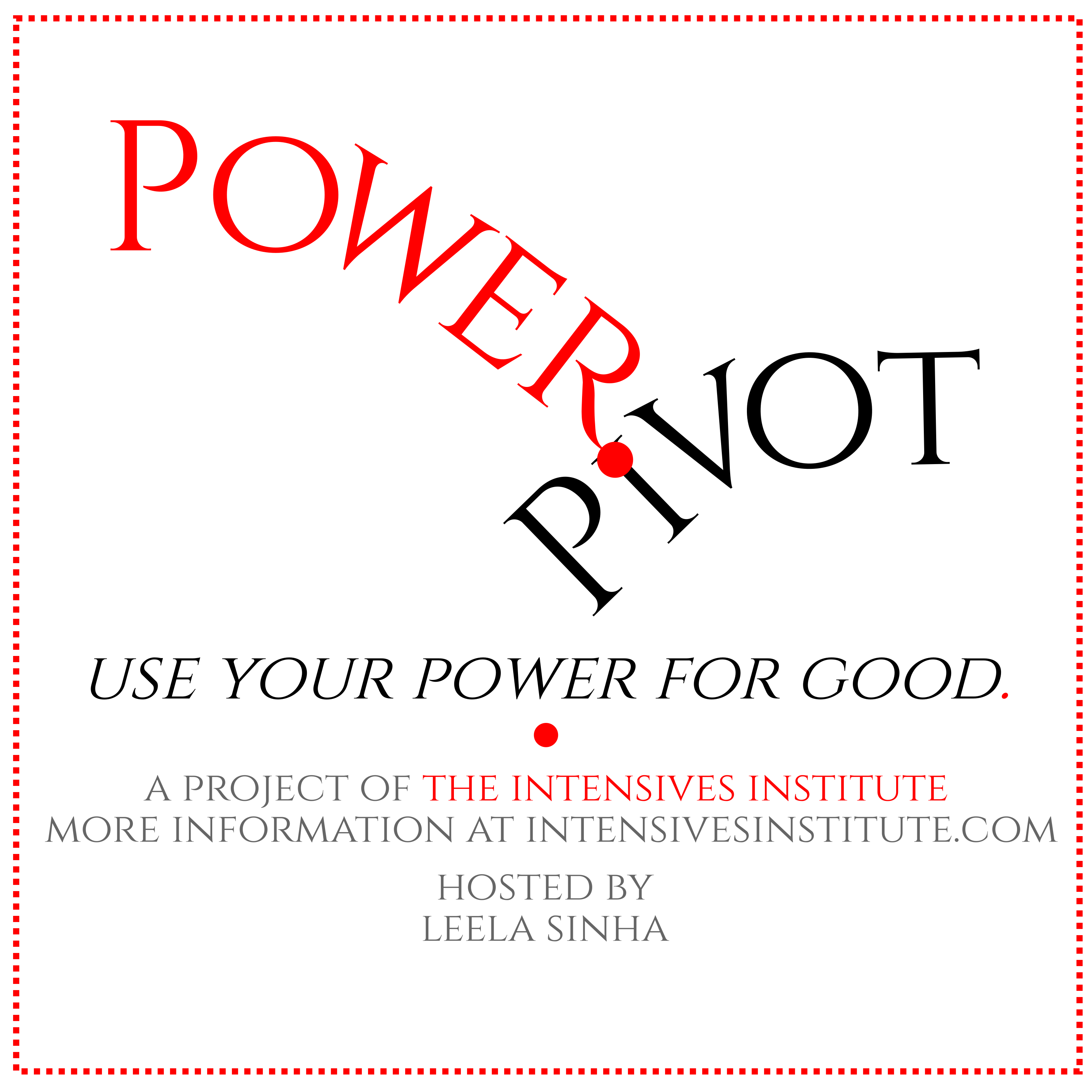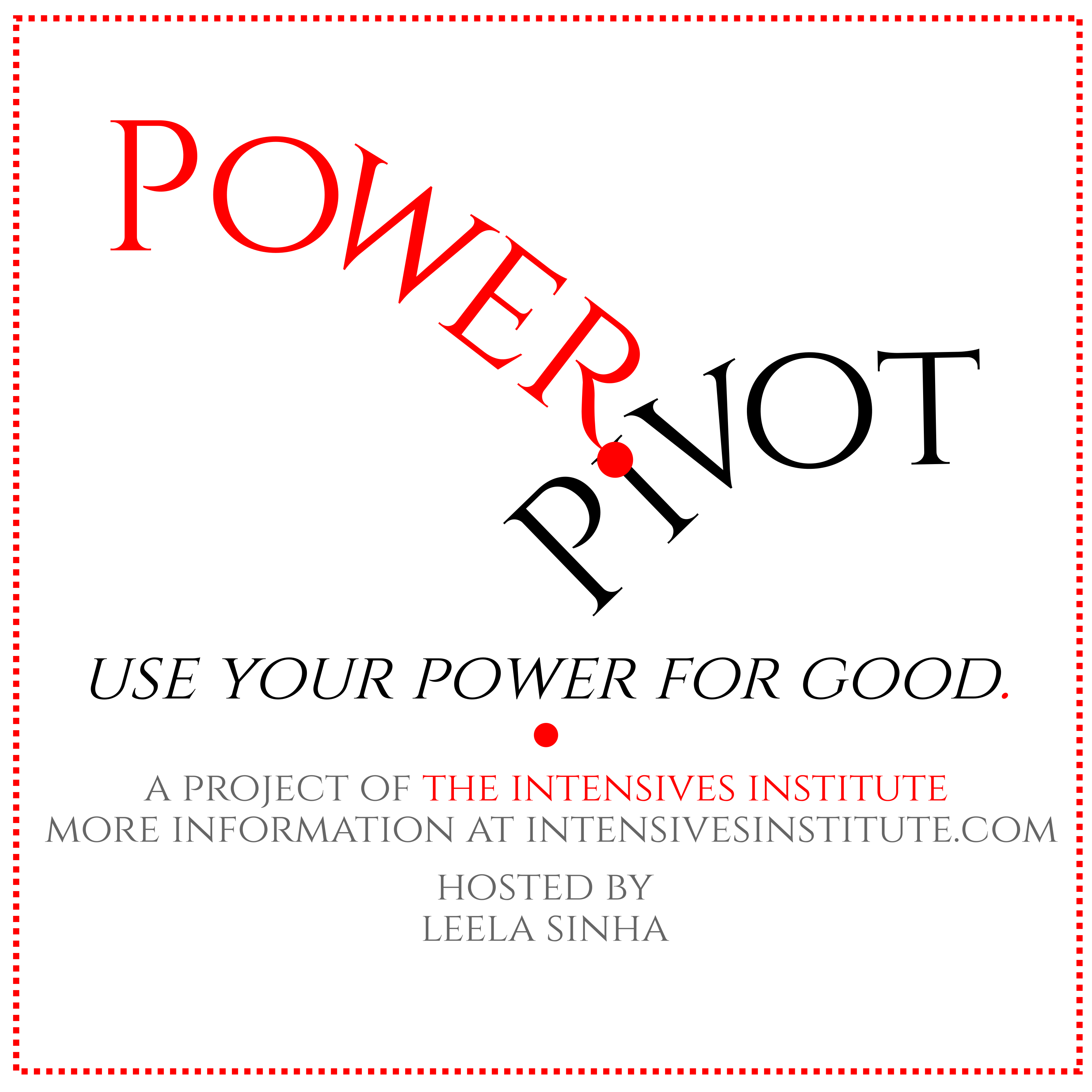Episode 93
contrasting SIEF with Meyers-Briggs
"...what SIEF does, that the other ones don't do, is lifts out this one set of behaviors and characteristics, just one- it's one axis.... This isn't meant to say that we're one dimensional; this is meant to describe one dimension of our deeply multi-dimensional selves."
The difference, and advantage of, the SIEF's single-axis framework in contrast to comprehensive personality profiles such as Meyers-Briggs.
For more on SIEF and to take the assessment:
https://intensivesinstitute.com/assessment/
For more on the Gottman Institute:
Recorded 8 May 2023.
Notes and Transcript:
https://dev.intensivesinstitute.com/captivate-podcast/contrasting-SIEF-with-meyers-briggs
Transcript
Hey, everyone, thanks for tuning in.
So this episode is gonna be a little different. Because I want to talk directly to something that people have asked a bunch now, which is, why is SIEF- that is, the Sinha Intensives-Expansives Framework- Why is SIEF better than or useful in addition to something like an Enneagram or Myers Briggs. And I feel like this should be one of those weird listicle websites where you have you know, all the checkboxes in the three columns, so you can compare them. But it's not really like that.
I think that's fine if you're comparing features on like, I don't know a new projector but but this is a little different. I did start, way back in the beginning back, when I was lying there with my back injury cogitating about all of this stuff, I did start with the idea that somebody must have done it already. And the place I looked was psychological assessment.
So I looked at Myers Briggs, I looked at DiSC, I looked at a whole bunch of different assessments, looking for an assessment that filtered the intensives from the expansives, in some kind of clear way. And what I found, and the reason that I developed the framework is because nobody had done it. It didn't really exist in the form that I was talking about. There were there were hints of it, there were highlights of it. It showed up here in there a little bit. But in the way of an assessment that managed to clearly separate these two things, it didn't exist.
Now, as some of you probably know, I'm nonbinary. Binaries are not inherently my place. In fact, I have a whole thing where I talk about living in the liminal spaces, occupying the liminal spaces, how a line is actually a place. It has dimension, it has breadth. And how some people camp there and some people cross it. But I actually live in the borderlands. So for me to develop a binary system is a little bit funny. It's a little bit odd, right?
But what I found I needed was a way to understand what was happening in front of me. And the reason I share it is because I believe that everybody needs this particular understanding of what's happening in front of us. Of what's happening around us. Of why we miscommunicate. Of why we end up with friction and contempt and disdain.
I talk all the time about John Gottman's four horsemen of the relationship Apocalypse because they are key. Gottman's work is of course around into personal mostly relationship, romantic relationship type work. However, it applies anytime you have a relationship between two people. And those four horsemen of the relationship apocalypse are: criticism, defensiveness, contempt and stonewalling.
When we see those things-and this is not supportive, helpful criticism, this is not constructive criticism. This is this is disdainful criticism. When we see those, in any relationship between two or more people, what we're seeing, what we're encountering is, is the breakdown, the symptoms of the breakdown of that relationship. The distancing, that makes it harder to work together to trust each other, to engage with each other in good faith.
And I think, to some extent, pretty much every psychological profiling system out there is designed to address that. But what SIEF does, that the other ones don't do, is lifts out this one set of behaviors and characteristics, just one- it's one axis. Once you learn it, it's in your head, you can't- I mean, you can forget it- but it's hard to shake because it's so sticky. It makes a kind of inherent sense. Sometimes people forget the exact words that I use, but they don't forget the concepts. And the reason that we don't forget those concepts, is because we've seen it over and over and over again.
This is describing something very specific that people recognize almost immediately. Intensives being too much, expansives being too boring. This, this contempt that's wrapped into the way we describe each other is something that we learn from the cultures that we occupy.
And I say cultures plural, deliberately, because many of us code switch between at least two cultural spaces. And often one of those cultural spaces is much more accepting of intensiveness or expansiveness, and the other one prefers the other one. And so we have to kind of slide ourselves across the spectrum in the way that we present ourselves.
So, this isn't meant to say that we're one dimensional, this is meant to describe one dimension of our deeply multi dimensional selves. And I actually think that's more useful than trying to describe everything all at once.
So when we work with these concepts we work specifically with, what are the needs that are usually indicated by this type or that type? What are the needs that are usually indicated by this type of institution? Because institutions have types too. And how do we build bridges and buffers to make the interactions without making anybody wrong for who they are? How do we build those bridges and buffers to make those interactions easier? How do we create jobs that suit us. That suit somebody else. That would suit any one person.
I hold that most jobs should be either intensive or expansive. And that job descriptions and portfolios should be designed around that. And then you find someone who fits well with that job description and portfolio, and they may be an intensive, or they may just be an expansive, who's extraordinarily good at that one niche thing. But knowing whether the position is inherently intensive or expansive, gives us space. Knowing whether somebody is intensive or expansive, knowing whether their role is intensive or expansive allows us to make the people that we work with happier by providing for their needs better, by wrapping them in an environment of care.
Which is not something we talk about in workplaces very often.
But this is where we spend the bulk of our time. Most of us spend most of our time working, we need to do that. We need to think about what care looks like when it is extended throughout the day and not something that stops at the door of your office building. And that you can maybe pick up on your way out if you're not too tired.
So unlike the more complex psychological systems, unlike the systems that try to describe everything entirely all at once, this focuses on one axis of behavior. And I don't actually care why people are like that. I mean, I do that's a really interesting question. Why are people intensive? Or why are people expansive? But I think it's fairly inherent, although it can be influenced by some other factors. I think it's fairly inherent to who we are. To genetics, to development. And as a result, I think it's not something that we have any business trying to change.
And if we're not going to change each other, if that's not the goal of the interaction- I ask clients so often, What is your goal in this interaction? What are we aiming for? What are we trying to do? And so often people start out thinking they want to change someone else. Change someone else's behavior, change someone else's thought process, change someone else's inherent being.
And there's this layer of judgment on top of it, right? If they would just be on time more often, it's, you know- And then there's, "it's disrespectful." That's interpretation. And then, you know, "they're not a good person, they're not adult enough, they're not mature, if they acted more mature than blah, blah, blah." And that, of course, is is layer after layer after layer of anti-intensive thinking and behavior that is reinforced by the culture that we live in. That tells us those things that teaches us those stories, so that when we encounter those behaviors, we have already that entire wrapper around them.
And what if instead, we said that's how this person is? What do we need to change, about expectations, about systems, about models of work, so that that person can be who they are. And be well supported, as the person they are. And so that I too, with my very rigid timing can be well supported for who I am. I am like this, they are like that.
I, personally, am sort of in the middle. I used to be extremely, extremely attached to being on time. Such that I would arrive 20 minutes early to everything. And that came from somewhere.
But I have since learned that I don't need to be as anxious around timing. That if I'm two minutes late, it's Okay. And if I'm three minutes early, it's also Okay, but oftentimes less Okay than being two minutes late. And sometimes I'm more late than that.
And what are the things that we need to do? What are the things I need to set up so that I can be wrapped in an environment of care? And the other person can also be wrapped in an environment of care? How can we take care of each other? That's the question I'm asking, because the question that's really fundamental, that I started out asking, is, how can we have more pleasure and less pain in the world?
There's so much suffering. How can we reduce it? And I'm not the Buddha. So I'm not going to be, you know, meditating under a tree after having eaten a single grain of rice looking for some kind of great cosmic answer. I deeply respect people who do that. But that is not my way of being in the world. That's not my call. But my call is to reduce suffering.
So how do we reduce suffering if we're spending eight, ten, twelve hours a day at work. How do we make work a better place to be? How do we make work better place to be? That's the question we're answering. So while all those other systems also are trying to do something similar- they are so diffuse within their descriptions of people, and in their subsequent recommendations, that it becomes very difficult to implement anything. So everyone's like, Oh, yeah, that's great, whatever. And then they go off in their other directions.
My system is designed to be memorable. It's designed so that everybody will remember it, and it will be in people's heads and it will persist. And people will use it. Oh, yeah, you're an intensive. That's why you're acting like that. Somebody's- Oh, right. It was the intensives.
The expansives: Oh, you're an expansive, then I'm sorry that I'm going to drop this on you with no advance warning. I know that advance warning is better for you, right? I don't necessarily have the option of doing more than that. I may not be able to create more spaciousness. But I can acknowledge that it's a stressor, I can acknowledge that it's hard. I can be kind about it.
I can remember that expansives really like small talk, entry ramps, exit ramps. The social niceties are really important to most expansives. And I can remember that, and I can try to meet that need most of the time. And I can explain that when I don't, it's not personal. And maybe they'll remember it. Maybe they won't, but maybe they will. They're a lot more likely to remember that than whether I'm an INFJ or an INFP. And what that means about my organizational style or my approach to work.
I had first learned, specifically Myers-Briggs, when I was in middle school? Middle school. I was in middle school when I took the assessment for the first time. It was a long time ago, and I still can't remember most of those 16 four-letter sets, much less what they mean. I know my own. That's it really. And even my own has been fuzzied over time. It used to be really clear. And now it's not. Because I've grown and changed, and it's trying to describe so much of me at once.
So I highly recommend, regardless of what other systems you're engaging with- I highly recommend that you consider SIEF as a way of talking about behavior driven by inherent characteristics, behavior that we can then learn to delight in. To appreciate. Instead of contempt, we can have joy and gratitude.
We can share projects according to what we are good at, instead of according to some kind of rigid set of boundaries and layers of bureaucracy. We can help each other, we can support each other. One of the reasons people like the Great British baking show, and the great pottery throwdown is because contestants sometimes help each other, like they actually help. Oh, you're gonna drop that thing. I'm not going to stand here and watch it fall. I'm going to rush over and see if I can catch it for you.
We can help each other at work. We can support each other. We can make sure that our people have the tools they need, and the infrastructure they need to use their gifts, to lean into their strengths. And honestly, to avoid their weaknesses as much as possible. If something's not something you're good at, you shouldn't have to do it at work. If you hate doing something, find someone who loves it. And trade with them. There's probably something you do that they hate.
This is about creating an atmosphere of collaboration, of mutual support. Of mutual delight. And it's about doing it with a tool that's easy to remember. That's easy to use. That's easy to engage. And that can affect everything, from conversations to strategic planning. Everything from hiring, to retention, to promotion. Everything from project ideation to project management, to sales, everything.
It's funny, because I've been working for myself for quite a while and this is really the only thing that I have done that's this easy for me to support and promote. Because it's that effective. It's that good. It changes people's relationships everywhere. And it makes their lives better.
And if I've got something that will make your life better, I want you to have it.
Thanks for tuning in.


